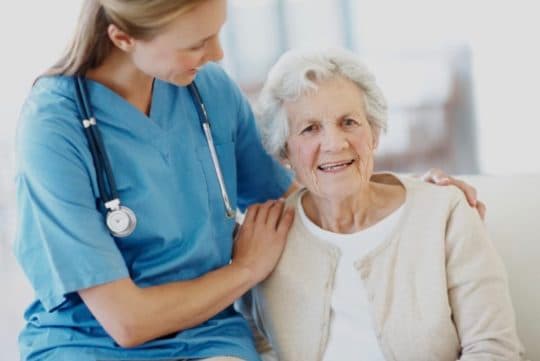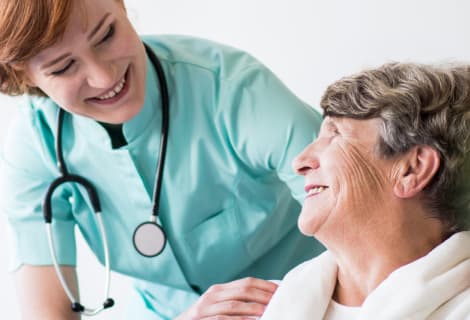

Are you seeking top-tier home health care services that prioritize your loved one’s well-being?
Look no further than All American Home Care, where we go above and beyond to ensure your family member receives the compassionate and expert care they deserve in the comfort of their own home.
At All American Home Care, we understand that choosing the right home care agency is a crucial decision. We take pride in offering a wide range of services designed to meet the unique needs of every patient.
Our commitment to delivering exceptional care is evident in our team of dedicated caregivers, our comprehensive care plans, and our unwavering dedication to our local community.
Caregiver Jobs in Philadelphia
Live In Caregiver Job in Philadelphia



Our certified, experienced caregivers help our patients enjoy a higher quality of life at home. We understand that each patient is unique, and we tailor our care plans to address their specific needs. Whether your loved one requires speech therapy, physical and occupational therapy, or personal care services, our caregivers have the expertise to provide top-notch care.

Home care for your loved ones is available around the clock, even nights and weekends. We recognize that health issues and emergencies don't follow a schedule, which is why we offer 24/7 support to ensure your family member receives the care they need when they need it. Your peace of mind is our priority.

Every member of the All American Home Care Agency team approaches patient care in the same way we would with our own family. We understand the emotional toll that illness or injury can take on both patients and their families.Our caregivers are not only skilled professionals but also compassionate individuals who treat your loved one with the dignity and respect they deserve.

All American Home Care firmly believes that few things are more important than community, and we show our appreciation by always striving to give back. We are actively involved in supporting local initiatives and charities that promote health and well-being for older adults and those in need of long-term care. When you choose All American Home Care, you are also supporting a company dedicated to making a positive impact in your community.

Home health services are those that help clients of all ages, from children to senior citizens, remain in the comfort of their own homes while receiving additional care either after a stay in a medical facility or to avoid hospitalization.

Waiver programs, also known as waiver funded services, are programs for individuals that require long-term care but wish to remain in the comfort of their own home. The quality of care received through a waiver program is the same level as one would receive in a hospital
At All American Home Care, our services include a wide array of options to cater to your loved one’s specific needs, ensuring they receive the best possible care. Our services include:

We understand that navigating health insurance can be complex. That’s why All American Home Care works with various health insurance providers to ensure that the cost of our services is covered whenever possible. We believe that everyone deserves access to high-quality home health care, and we are here to assist you in understanding your coverage options.
When you choose All American Home Care, you’re choosing a team of expert caregivers who are dedicated to providing the best possible care for your loved one. We take pride in our commitment to our community and our mission to improve the lives of those we serve.
Contact us today to learn more about how our comprehensive home care services can benefit your family. We are here to answer your questions, discuss your unique needs, and provide the compassionate care your loved one deserves.
Experience the All American Home Care difference, where expert care, availability, compassion, and community involvement come together to provide the highest level of care possible.
Does Medicare cover home health care in PA?
How Do I Get In Home Care For The Elderly In PA?
Caregiver Guide: Roles, Responsibilities & Support in PA
Exciting Opportunities! We’re hiring caregivers, home health aides, direct care workers, certified nursing assistants, patient care coordinators, and professionals in human resources and sales.
Enjoy competitive salaries, generous PTO, 401k benefits, and a collaborative work environment. Explore your next career move on our careers page!
Caregiver Jobs in Philadelphia
Home Health Aide Jobs in Philadelphia
Direct Care Worker Jobs in Philadelphia
Certified Nursing Assistant Jobs in Philadelphia